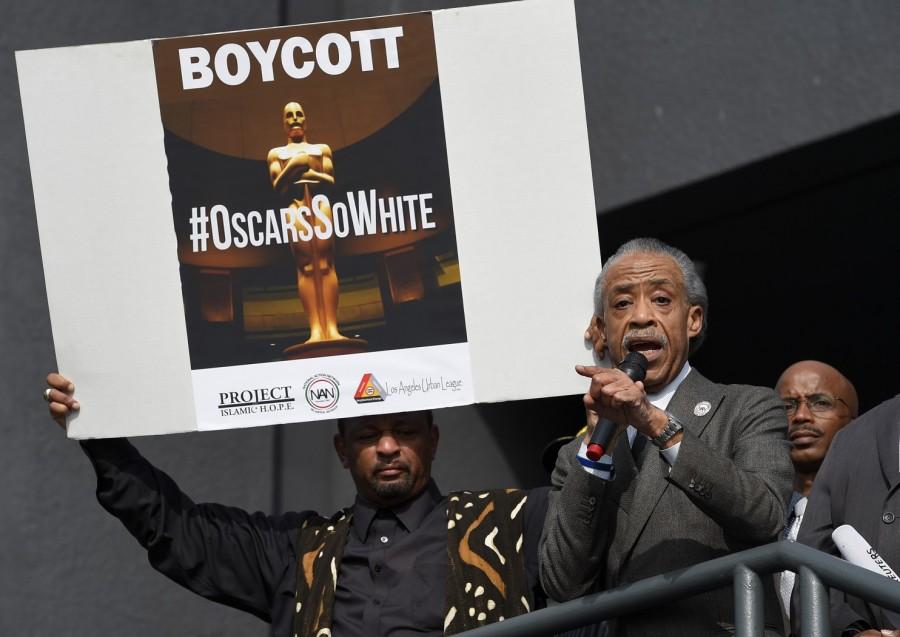Hollywood’s systemic discrimination
February 29, 2016
February 28 will mark the 88th anniversary of the Oscars, which debuted in 1929. The first Oscars show had around 15 Oscars given out, with the nominees announced months prior. This practice changed after the second award show, where the results were postponed until the night of and printed out on newspaper. The award show became televised in the late fifties.
Out of the 20 acting nominations this year, all nominees have one thing in common: they are all white. This was the second year in a row where all nominees were white in the four acting categories. Actors such as Idris Elba (Beasts of No Nation), Will Smith (Concussion), Michael B. Jordan (Creed), and the cast of “Straight Outta Compton” were also overlooked in favor of the all-white nominees.
Jada Pinkett-Smith stood firmly against attending the award show for the lack of diversity. She posted a video on Facebook on how “begging for acknowledgement, or even asking, diminishes dignity and diminishes power.” Will Smith also agreed with his wife on staying home, saying it would be “awkward” to attend. “Everyone is beautiful and deserving and fantastic, but it feels like it’s going in the wrong direction,” he stated.
On the other end of the Oscars spectrum, Roger Ross-Williams, the first black Oscar-winning director, did not boycott the ceremony but instead still supported a push for change. He told the Hollywood Reporter how people have asked him about the diversity issue within the Oscars and agreed that it shouldn’t be kept under wraps. “I simply shouldn’t have been the first. I received my Oscar 81 years after the Academy first began bestowing the award,” Ross-Williams expressed.
Ross-Williams also continued in questioning why African Americans be able to vote if they are no longer active in the industry. “We need to promote a young and diverse membership that reflects the true face of America. If Hollywood refuses to keep up with the ever-widening variance of ethnic presence in the population, then we should not wait around until they choose to do so,” he stated.
Lupita Nyong’o made her voice heard among the masses as well; being an Oscar winner in the past does not keep her silent. She has joined other celebrities who have argued that the lack of diversity is seriously starting to affect communities. “It’s a symptom of something else,” she told Savannah Guthrie on Today. “What we are asking for is really more stories to be told – for inclusion in the stories that are told,” she continued.
Mark Harris, Cultural Critic, noted that this marks the first time there has not been any black acting nominees two years in a row since 1997-1998. Instead of this becoming a permanent adversary to the community, Harris claims it may only be a dip.
With the Oscars quickly approaching, there is hope that next year may contain a diverse group of nominees that deserve recognition.


